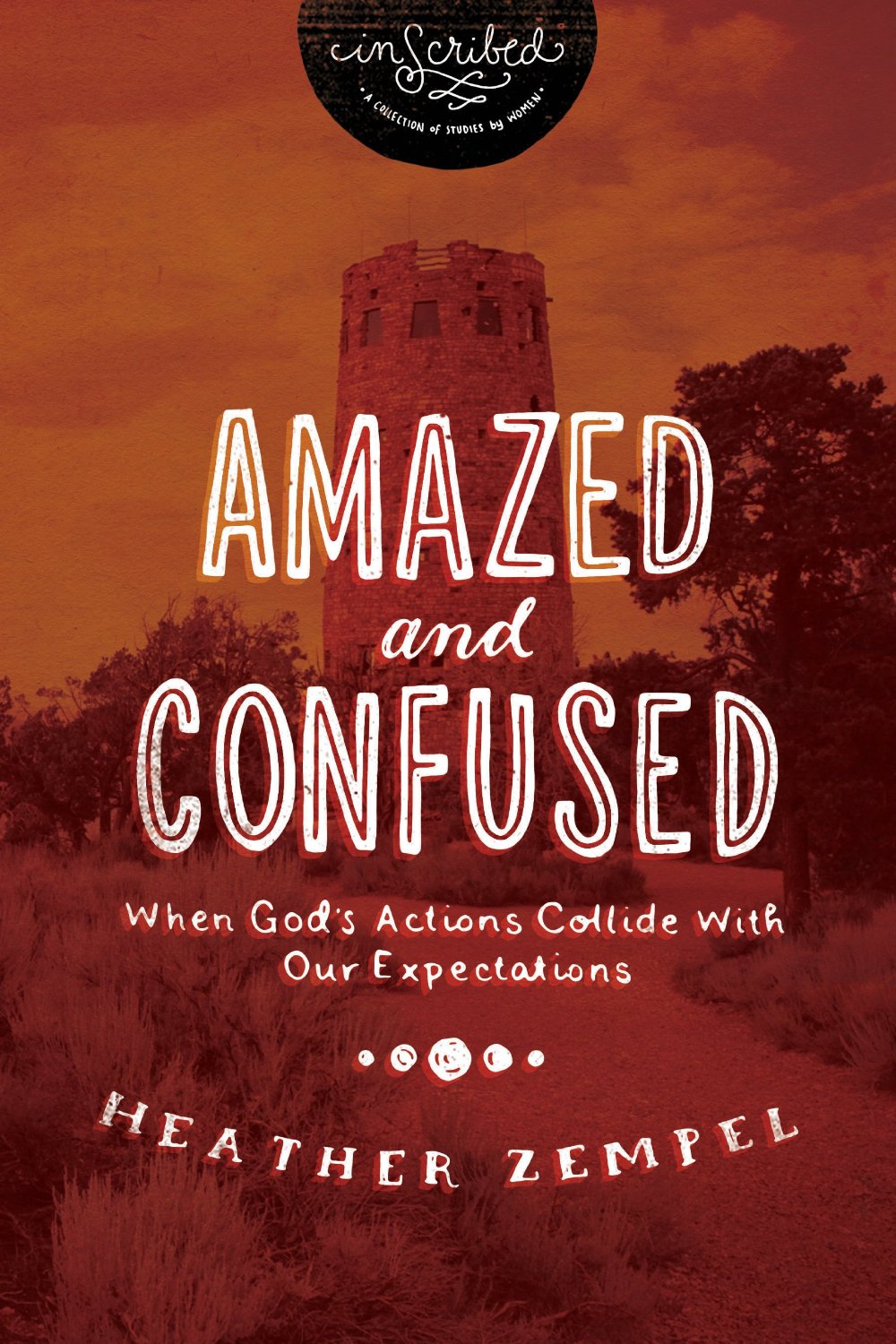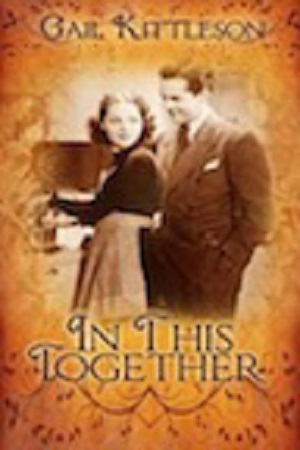Faith for Furnaces by Heather Zempel
Julie’s Note:
I will be reviewing Amazed and Confused by Heather Zempel tomorrow.
Faith For Furnaces
The Bible is replete with parables and promises that are predicated with the word “if.” Consider the cause-effect chain reaction that is ignited if we believe, if we pray, if we have faith, if we open our Bibles to:
-
2 Chronicles 7:14: “If my people, who are called by my name, will humble themselves and pray and seek my face and turn from their wicked ways, then I will hear from heaven, and I will forgive their sin and will heal their land.” (NIV)
-
1 John 1:9: “If we confess our sins, he is faithful and just and will forgive us our sins and purify us from all unrighteousness.” (NIV)
-
Revelation 3:20: “Here I am! I stand at the door and knock. If anyone hears my voice and opens the door, I will come in and eat with that person, and they with me.” (NIV)
God’s character is revealed to us and His blessings are discovered when we dare to step out on faith in the “if.” But what happens if . . . not? What if you are humble, pray, seek, and turn, but your nation still moves toward ruin? What if you muster all the faith you can but it still doesn’t seem to equate to a mustard seed? What if you believe the character and promises of God and are faithful to do what comes after the “if” but God doesn’t pull through on His end?
God’s answer to Habakkuk’s prayer came in a succession of attacks from the Babylonian armies of King Nebuchadnezzar. In 605 BC, Babylon invaded and deported select young Jewish men with great potential to be trained in Babylonian culture, language, and literature. Four of those men were Daniel, Hananiah, Mishael, and Azariah. We know the latter three better by their Babylonian names: Shadrach, Meshach, and Abed-nego.
When given food and wine from the king’s table, these four young men refused to eat it, likely because it did not comply with Jewish dietary laws and/or it had been offered as sacrifices to foreign gods. Their commitment to the one true God was so strong that we read in Daniel 1:8 that Daniel “resolved that he would not defile himself with the king’s food, or with the wine that he drank” (ESV). After proposing an alternative plan of eating fruits, vegetables, and water, the four young men were tested, examined, and found to be better nourished than the youths who ate the king’s food. Not only were they healthier, but when they stood before the king, he found them to be ten times better than all of his court magicians, and they were elevated to positions of influence in the king’s palace.
Many years later, Nebuchadnezzar constructed an idol—ninety feet high and nine feet wide—and he called all of the leaders and government officials of the empire to come to its dedication. Government leaders and those in positions of power were directed to worship the idol.
Three men refused to bow down: Shadrach, Meshach, and Abed-nego. The king flew into a rage and summoned them.
“It is reported to me that you, Shadrach, Meshach, and Abed-nego, refuse to serve my gods and do not bow and worship the golden statue I had set up. Is that true? If you are ready to comply with my order and fall down and worship the statue I have made when you hear the sound of the horn, flute, lyre, lute, harp, pipe, and all the other musical instruments, then things will go well for you from here. But if you refuse to worship, you will be taken immediately and thrown in a furnace of blazing fire. What god could possibly rescue you from my hands then?” (Dan. 3:14–15)
Check out their courageous response in Daniel 3:16–18: “Nebuchadnezzar, we have no need to defend our actions in this matter. We are ready for the test. If you throw us into the blazing furnace, then the God we serve is able to rescue us from a furnace of blazing fire and release us from your power, Your Majesty. But even if He does not, O king, you can be sure that we still will not serve your gods and we will not worship the golden statue you erected.”
This brand of faith knows God can . . . believes He will . . . but worships even if He doesn’t. These men’s faith sent the enemy into such a fit of anger that his face distorted with rage.
We don’t need to defend ourselves, and we don’t need to defend God. If you throw us in, God is able to deliver. But even if He does not . . .
But even if He doesn’t. It’s the declaration of “if not” faith. The first “if” statement was rooted in God’s ability. This second “if” statement has nothing to do with His ability but everything to do with our response to His perfect, sovereign, mysterious will.
In that moment, Daniel’s friends did not know the outcome. They clung to the promise that God can and acknowledged the reality that He might not. Though their circumstances might change, God’s character would not. They stood precariously in the land between if and if not. They stood strong in “He is able” confidence and “if not” faith while recognizing that a furnace stood between those two worlds.
It is entirely possible that God’s words through the prophet Isaiah were echoing in their heads and stirring hope in their hearts:
Eternal One: When you face stormy seas I will be
there with you with endurance and calm;
you will not be engulfed in raging rivers.
If it seems like you’re walking through fire with
flames licking at your limbs,
keep going; you won’t be burned. (Isa. 43:2)
Many heroes of the Bible had “if not” faith. Moses never made it to the Promised Land; Hosea married a prostitute who ran away; and Paul probably took that thorn in his flesh to the grave.
Habakkuk declared his faith in the land of “if not,” and it inspires us to stand strong, as well.
**Amazed and Confused by Heather Zempel is part of the InScribed book collection. Learn more about InScribed and other books in this collection by visiting InScribedStudies.com. Parts of this blog are excerpts from the book, Amazed and Confused, released March 4, 2014 through Thomas Nelson.
Heather Zempel – Heather Zempel is the discipleship pastor at National Community Church in Washington, DC. Having obtained bachelor’s and master’s degrees in biological engineering from Louisiana State University, Heather worked as an environmental engineer and as a policy consultant on energy and environment in the United States Senate. Heather lives on Capitol Hill where she can be found searching out the best barbeque joints, watching college football, and enjoying theater with her husband Ryan. In addition to InScribed’s Amazed and Confused : When God’s Actions Collide with Expectations which is available now (http://inscribedstudies.com/) Heather is also the author of Sacred Roads and Community is Messy.
Purchase Amazed and Confused through any of the resources on the Inscribed Studies page.










